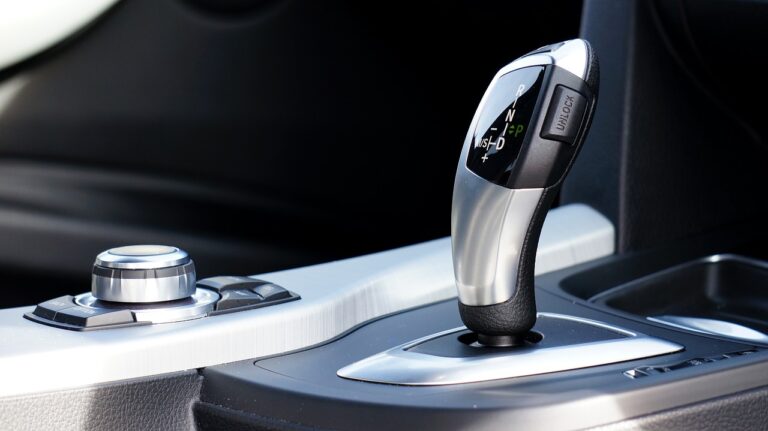Analyzing the Maintenance Costs of Diesel vs. Gasoline Vehicles: All panal.com, Get cricket id, Gold 365
all panal.com, get cricket id, gold 365: Analyzing the Maintenance Costs of Diesel vs. Gasoline Vehicles
When it comes to choosing between a diesel or gasoline vehicle, one of the key factors to consider is the maintenance costs associated with each type of fuel. Both diesel and gasoline vehicles have their pros and cons when it comes to maintenance, so it’s crucial to weigh the differences before making a decision. In this article, we will delve into the maintenance costs of diesel vs. gasoline vehicles to help you make an informed choice.
Diesel vs. Gasoline Vehicles: An Overview
Before we dive into the maintenance costs of diesel vs. gasoline vehicles, let’s first understand the basic differences between the two types of vehicles.
Diesel vehicles typically have higher upfront costs compared to gasoline vehicles. However, diesel engines are known for their durability and longevity, which can result in lower maintenance costs over time. On the other hand, gasoline vehicles are generally more affordable upfront but may require more frequent maintenance due to the nature of gasoline engines.
Now, let’s break down the maintenance costs of diesel vs. gasoline vehicles to see which one may be more cost-effective in the long run.
Fuel System Maintenance
One of the key differences between diesel and gasoline vehicles is the fuel system. Diesel engines utilize a high-pressure fuel system, which requires more robust components compared to gasoline engines. As a result, fuel system maintenance for diesel vehicles can be more expensive than gasoline vehicles.
Diesel fuel injectors, for example, are more intricate and costly to replace compared to gasoline fuel injectors. On the other hand, gasoline fuel filters may need to be replaced more frequently, adding to the maintenance costs of gasoline vehicles.
Overall, fuel system maintenance costs for diesel vehicles tend to be higher than gasoline vehicles due to the complexity of the system.
Engine Oil Changes
Regular engine oil changes are essential for the proper functioning of any vehicle. Diesel engines typically require more frequent oil changes compared to gasoline engines. This is because diesel fuel combustion produces more contaminants that can contaminate the engine oil faster.
On the flip side, gasoline engines generally have longer intervals between oil changes, which can result in lower maintenance costs over time. However, it’s important to note that the type of oil used and driving conditions can also impact the frequency of oil changes for both diesel and gasoline vehicles.
Air Filter Replacement
Air filters play a crucial role in maintaining the engine’s performance by filtering out dust, dirt, and other contaminants from entering the engine. Diesel engines tend to have larger and more robust air filters compared to gasoline engines due to the nature of diesel combustion.
As a result, air filter replacement for diesel vehicles may be more expensive than gasoline vehicles. However, diesel engines are also known for their efficiency and longevity, which can offset the higher maintenance costs associated with air filter replacement.
Transmission Maintenance
The transmission is another critical component of any vehicle that requires regular maintenance to ensure smooth operation. Diesel vehicles typically have a more robust transmission system compared to gasoline vehicles, which can result in higher maintenance costs.
Transmission fluid changes, for example, may be required more frequently for diesel vehicles due to the higher torque output of diesel engines. On the other hand, gasoline vehicles may have a less complex transmission system, which can result in lower maintenance costs over time.
Overall, transmission maintenance costs for diesel vehicles may be higher than gasoline vehicles, but the durability and longevity of diesel transmissions can make them a cost-effective choice in the long run.
Brake System Maintenance
Brake system maintenance is crucial for the safety and performance of any vehicle. Diesel and gasoline vehicles may have similar brake components, but the maintenance costs can vary depending on the driving habits and conditions.
Diesel vehicles, especially heavy-duty trucks, may require more frequent brake inspections and replacements due to the higher weight and towing capacity of diesel engines. In contrast, gasoline vehicles may have lesser maintenance costs for the brake system, especially for lighter vehicles with normal driving conditions.
It’s important to factor in the driving habits and conditions when considering brake system maintenance costs for diesel vs. gasoline vehicles.
Cooling System Maintenance
The cooling system is essential for regulating the engine temperature and preventing overheating. Diesel engines typically run at higher temperatures compared to gasoline engines, which can result in increased maintenance costs for the cooling system.
Coolant flushes and radiator repairs may be more frequent for diesel vehicles, as the engine requires more efficient cooling to operate optimally. Gasoline engines may have lower cooling system maintenance costs due to the lower operating temperatures, but it’s important to monitor the coolant levels and system for any signs of leaks or overheating.
Overall, cooling system maintenance costs for diesel vehicles may be higher than gasoline vehicles, but the durability and efficiency of diesel engines can make them a cost-effective choice in the long run.
Exhaust System Maintenance
The exhaust system is responsible for removing harmful emissions from the engine and maintaining optimal fuel efficiency. Diesel engines typically have more intricate exhaust systems compared to gasoline engines, which can result in higher maintenance costs.
Diesel particulate filters and selective catalytic reduction systems are common components of diesel exhaust systems that may require maintenance or replacement over time. Gasoline vehicles may have simpler exhaust systems that require less maintenance, which can result in lower overall costs.
Exhaust system maintenance costs for diesel vehicles may be higher than gasoline vehicles, but the efficiency and durability of diesel engines can make up for the difference in the long run.
Frequently Asked Questions
Q: Are diesel vehicles more expensive to maintain than gasoline vehicles?
A: Diesel vehicles may have higher maintenance costs compared to gasoline vehicles due to the complexity and durability of diesel engines. However, the longevity and efficiency of diesel engines can make them a cost-effective choice in the long run.
Q: Which type of vehicle has lower fuel system maintenance costs?
A: Gasoline vehicles typically have lower fuel system maintenance costs compared to diesel vehicles. Gasoline fuel injectors and filters are generally more affordable and easier to replace than diesel components.
Q: Do diesel vehicles require more frequent oil changes than gasoline vehicles?
A: Yes, diesel vehicles tend to require more frequent oil changes compared to gasoline vehicles. Diesel fuel combustion produces more contaminants that can contaminate the engine oil faster, necessitating more frequent oil changes.
Q: Are transmission maintenance costs higher for diesel vehicles?
A: Transmission maintenance costs for diesel vehicles may be higher than gasoline vehicles, as diesel transmissions are typically more robust and complex. However, the durability and longevity of diesel transmissions can make them a cost-effective choice in the long run.
Q: Which type of vehicle has lower brake system maintenance costs?
A: Gasoline vehicles may have lower brake system maintenance costs compared to diesel vehicles, especially for lighter vehicles with normal driving conditions. However, heavier diesel vehicles may require more frequent brake inspections and replacements due to the higher weight and towing capacity.
Q: Do diesel vehicles have higher cooling system maintenance costs than gasoline vehicles?
A: Yes, diesel vehicles may have higher cooling system maintenance costs compared to gasoline vehicles. Diesel engines typically run at higher temperatures, necessitating more efficient cooling and more frequent coolant flushes and radiator repairs.
In conclusion, the maintenance costs of diesel vs. gasoline vehicles can vary depending on various factors such as the type of vehicle, driving habits, and maintenance practices. While diesel vehicles may have higher upfront costs and maintenance expenses, the durability and efficiency of diesel engines can make them a cost-effective choice in the long run. It’s essential to weigh the pros and cons of each type of vehicle before making a decision to ensure optimal performance and longevity.







